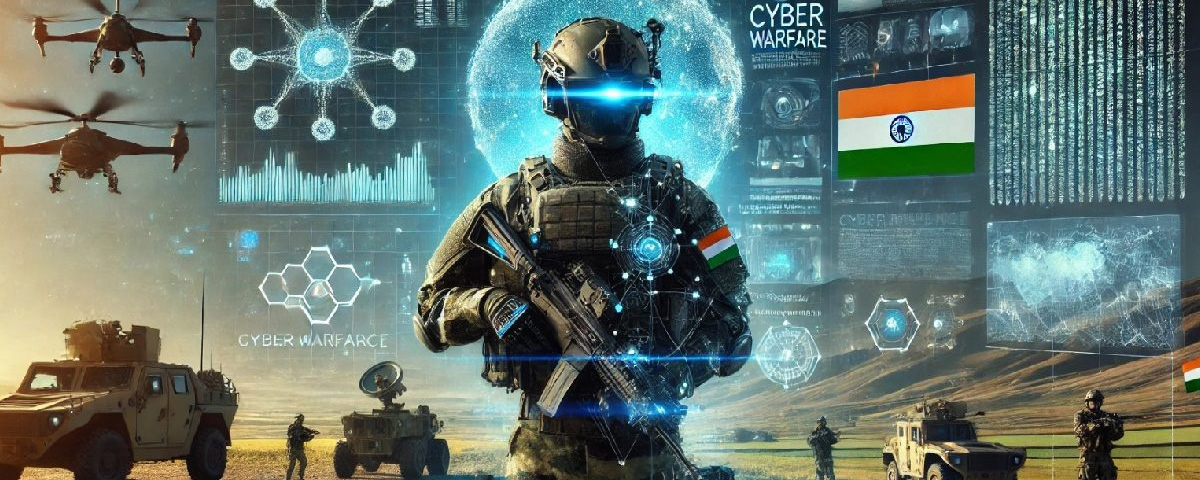Battlefield AI:India’s Strategic Shift


In today’s fast-evolving security landscape, artificial intelligence (AI) is revolutionizing how wars are fought. Gone are the days when conflict was limited to boots on the ground, tanks, and missiles. Modern warfare increasingly relies on smart systems, unmanned drones, and real-time data analytics. AI is now central to military strategy, offering unmatched speed, precision, and predictive power. Countries across the globe are racing to harness these advantages, and India is no exception. Its recent success in Operation Sindoor marks a major milestone in the integration of AI into national defens.
Conducted along the Line of Control (LoC) and insurgency-affected border zones, Operation Sindoor was a high-stakes counter-terror mission that showcased India’s growing capabilities in AI-driven warfare. The operation featured a network of autonomous drones developed in collaboration with DRDO and Indian tech startups. These drones, equipped with AI-powered facial recognition and heat mapping, tracked enemy movements and relayed live intelligence to field commanders. More than passive surveillance tools, they analyzed behavior, ranked threat levels, and suggested target priorities, dramatically improving operational responsiveness.
On the ground, AI-powered surveillance systems aggregated data from multiple sources—sensors, satellite feeds, and social media—into a threat assessment dashboard. This allowed Indian forces to anticipate enemy tactics, respond to infiltration attempts swiftly, and prevent escalation into open conflict. Meanwhile, India’s cyber units used machine learning to guard military networks against digital threats. These algorithms detected malware, neutralized phishing attempts, and adapted to new forms of cyberattacks in real time.
One of the standout elements of Operation Sindoor was “Netra-AI,” an AI-based strategic decision-support system. Netra-AI simulated battlefield scenarios and offered data-driven recommendations to military leaders. Factoring in terrain, enemy strength, logistics, and civilian risk, it allowed for smarter and faster decisions, helping shape mission strategy dynamically.
India’s push for AI in defense mirrors global trends. The United States, China, and Russia are all investing heavily in autonomous weapons, smart surveillance, and AI-guided missile systems. However, the Indian approach stands out for its emphasis on indigenous innovation and ethical governance. Programs like iDEX (Innovations for Defence Excellence) have created a defense-tech ecosystem that encourages local startups to develop next-generation military solutions. Companies such as ideaForge and NewSpace Research are already contributing to India's tactical edge in border security and reconnaissance.
Despite the promise, AI warfare raises tough ethical and operational challenges. One concern is accountability. If an AI drone mistakenly kills civilians based on faulty data, who is responsible—the operator, the programmer, or the system itself? The issue of “adversarial AI”—when enemy systems attempt to mislead or disable friendly AI—also adds complexity to digital battlefields. India is addressing these concerns through its Defence AI Council, which is drafting guidelines for ethical use, human oversight, and transparency.
Internationally, the lack of consensus on regulating lethal autonomous weapons is troubling. Efforts by the United Nations and expert forums remain mired in geopolitical tensions. Yet as countries move toward automated warfare, global norms and safeguards become more urgent than ever.
Strategically, AI is shifting the balance of military power. Superiority will increasingly depend on algorithmic speed, data control, and cyber resilience—not just troop numbers or weapon stockpiles. For India, with multiple hostile borders and a goal of strategic autonomy, AI offers a way to overcome traditional limitations.
Operation Sindoor proves that AI is no longer futuristic—it is already a force multiplier. By investing in domestic R&D, ethical frameworks, and joint operations doctrine, India is positioning itself for the wars of tomorrow. In a world where AI defines both the threat and the response, mastering this technology may prove to be the ultimate defense.
Akansha Sharma brings curiosity and conviction to her work at Cult Current.